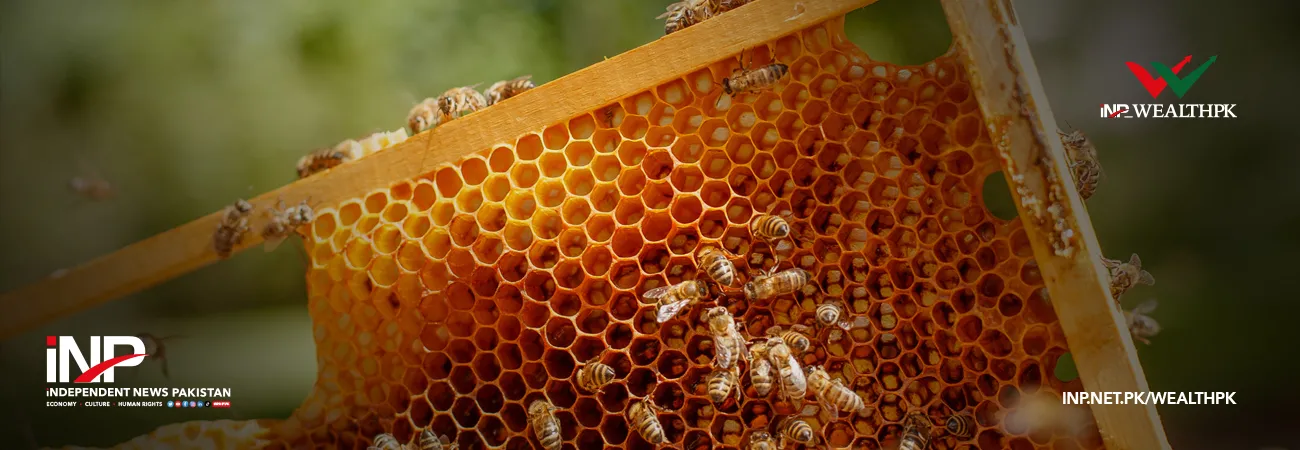INP-WealthPk
Saba Javed
Pakistan’s tech ecosystem registers another milestone after the successful conclusion of Higher Education Commission’s (HEC) Innovator Seed Fund (ISF), under which fifteen start-ups have been declared as winners for a prize money of USD35,000 each. A total of 186 start-ups had applied for the ISF out of which 26 were shortlisted for the final round. In the final round fifteen start-ups have been declared as winners and were given the prize money through the HEC to turn their innovative business ideas into successful business ventures.
Start-ups which succeeded in winning the prize money include ezGeyser, mimAR Studios, Funkshan Tech (Pvt) Ltd and truID Technologies (Pvt) Ltd from National University of Sciences and Technology (NUST); Savvy Engineers (Pvt) Ltd and Arm Rehab Technologies from International Islamic University Islamabad (IIUI); Averos Life Sciences from Institute of Management Sciences, Peshawar; Wonder Women from University of the Punjab; Orko (Pvt) Ltd, Boltay Huroof and Porter Pakistan from NED University of Engineering and Technology (UET) Karachi; VisionRD and Oxbridge Innovative Solutions (Pvt) Ltd from Bahria University Islamabad; 110 Innovate from IBA Sukkur; and Shahruh Technologies (Pvt) Ltd from UET Lahore.
The prize giving ceremony was attended by Chairman of HEC, Dr Mukhtar Ahmed as the Chief Guest; Country Director of the World Bank (Pakistan), Gailius J Draugelis; Executive Director of HEC, Dr Shaista Sohail; Vice Chancellors of the winning Universities; members of corporate bodies, jury members, and other stakeholders. Dr Mukhtar Ahmed said that a lot of innovative ideas are germinating in the tech ecosystem of the country. These ideas, he said, need to be supported through grants and resources to be turned into successful business ventures.
He added that in the year 2021 alone, around USD350 million was rounded up by Pakistani start-ups in seed money, adding that the state needs to help Pakistani start-up ecosystem with regulations, networking opportunities, dispute-resolution and crowd funding opportunities. He stressed the role of international bodies like the World Bank in supporting the new tech ideas. He highlighted the importance of coming up with innovative solutions to the problems being faced by the country and the world. He emphasized on state institutions to ensure the “availability of best-possible facilities” for the youth and create a quality research ecosystem.
He enumerated various initiatives and programs currently underway to support the youth of the country including the Prime Minister Youth Programme. He said that Business Incubation Centers are playing a very active part in helping young scholars, researchers and entrepreneurs come up with genuine ideas, research and solutions. He further said that pitching competitions like the ISF are very important in giving a chance to the best ideas to come forward, compete, and get recognition and support for their successful implementation.
Gailius J Draugelis, Country Director of the World Bank for Pakistan, stressed the need to further strengthen the partnership between HEC and the World Bank. He expressed hope that initiatives like the HEDP will continue to support the tertiary education system in Pakistan. He said that successful realization of business ideas into actual reality is very important for the socio-economic development of the country. BICs are playing an excellent role in this regard. Dr Shaista Sohail for her part said that Pakistan needs to make full use of the opportunities presented by its huge youth bulge. “Youth need to be trained and helped through state patronage so that their ideas can be harnessed for effective socio-economic uplift of the country.”
Talking about job creation she said that “start-ups are a very effective way to develop new business solutions for our lingering problems and also to create more jobs. Our start-up culture is still in its infancy and needs to be protected and guided for its long-term sustenance.” She added, “we need to embrace technology and innovative ideas coming through the start-up ecosystem.” Wahaj-us-Siraj, CEO of Nayatel Pakistan, said that there is no doubt that our university graduates are full of determination and ideas to solve our most pressing problems.
He said every cloud has a silver lining and every problem has a solution.He continued, “our students are embracing technology at a fast pace and coming up with radical solutions to our local problems. We can see all around us the achievements of our youth in coming up with genuine solutions.” The winners of the ISF were decided by a jury constituted by the HEC.
It consisted of members of academia and industry. The jury members included Azhar Rizvi, CEO of Cambridge Advisors Network; Noshad Minhas, Country Head Pakistan, Fasset; Dr Zain-ul-Abdin, General Manager SEEDS, IGNITE; Ms Nadia Jahangir Seth, General Manager, Policy & Planning SMEDA; Dr Shoaib Ahmed Khan, Chancellor CASE; Madiha Parvez, Head Corporate Innovation, Telenor; Owais Anjum, CEO, EMumba Pvt Limited; Fatima Mazhar, Member of Advisory Board, COLABS – CEO Confidential; Furqan H Qureshi, Founder, TheFourDees; and Aftab Chatha, CEO of Chatha Bio Care. ISF is an initiative of the Higher Education Development in Pakistan (HEDP) to support the start-up ecosystem of the country through financial and technical help.
HEC-recognised Business Incubation Centres (BICs) are providing the necessary help to start-ups in the form of seed money under the ISF in various universities across the country. The grant winners, in addition to seed funding, will be extended support through BICs in the form of entrepreneurial training, legal training and support, financial education, business development service provision, and investment readiness training.
Credit : Independent News Pakistan-WealthPk













